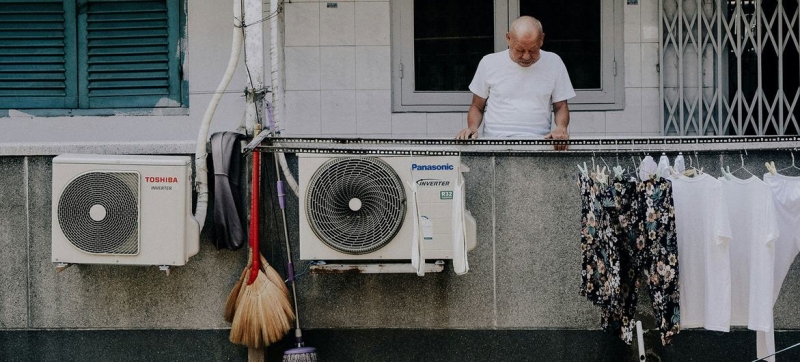
Using outdated air conditioners contributes to global warming. KS-30: AI and energy-intensive cooling are key technologies in the fight against the climate crisis Climate and Environment
As temperatures soar and extreme weather events become more frequent, participants at the UN Climate Conference (COP 30) in Belém, Brazil, are discussing how technology can help adapt to new realities without exacerbating the climate crisis. Particular attention is paid to artificial intelligence (AI) and energy-intensive cooling systems.
AI is already helping farmers predict droughts and optimize irrigation, but its environmental footprint has experts concerned. At the same time, demand for powerful cooling systems is growing: in the face of deadly heat waves, they become a prerogative, while remaining one of the largest sources of greenhouse gas emissions.
At the center of conference talks is a Technology Adoption Program designed to ensure access to life-saving innovations for those who need them most. However, progress has been slow: intellectual property rules, commercial restrictions and financial barriers continue to hamper developing countries despite the growing severity of the problem.
The Cooling Dilemma
KS-30 Executive Director Ana Toni is participating in discussions on technology solutions that can accelerate the fight against the climate crisis, from early warning systems for floods to satellite monitoring of methane concentrations.
Read also:
COP-30: Sustainable cooling technologies could cut emissions and save trillions of dollars
On Tuesday, the topic of energy-intensive cooling systems returned to the fore with the launch of the Beat the Heat initiative, a joint project of Brazil, the United Nations Program for Environment (UNEP) and partners from the Cool Coalition. Her goal is to make cooling more accessible and less polluting in a world where deadly heat waves are becoming the norm.
Demand for cooling systems is expected to triple by 2050, driven by rising temperatures and rising populations. Without intervention, cooling emissions could nearly double, overwhelming power grids and jeopardizing climate goals.
Artificial Intelligence Off the Agenda, But in the Spotlight
Although the topic of AI is not on the agenda for official negotiations at COP 30, it is being actively discussed within the Platform for Action, a mechanism designed to mobilize voluntary climate efforts from civil society, business, investors, cities and regions.
The Brazilian government brings to the attention of forum participants successful projects using AI to improve climate resilience. One such example is the initiative of researcher Alice Luangrath from Laos, who developed an AI irrigation system in Savannakhet province, which suffers from water shortages and climate stress. Luangrath is a 2025 AI for Climate Action Award winner.
The system combines soil moisture sensors, groundwater monitoring and weather data with AI-powered analytics, Luangrath said. The technology predicts land conditions, water availability and risks of flooding or extreme heat. Farmers receive real-time updates through the mobile app, helping them plan crops and watering more efficiently.
In an interview with UN News Service, she said she hoped attending COP 30 would help forge partnerships to take the technology to other countries vulnerable to climate shocks. All AI models and data processing tools in her project will be available for free use and development.
The environmental cost of digital solutions
As the use of AI grows, so does concern about its environmental footprint.
Lua Cruz, Telecommunications and Digital Rights Coordinator at the Brazilian Institute for Consumer Protection, recalled that even everyday digital activity – from the use of smartphones to online communications – depends on the operation of giant data centers.
“These facilities consume huge amounts of energy and water for cooling, occupy large areas and require significant mining to produce components,” he explained.
Cruz added that many data centers are ignoring environmental restrictions, choosing regions with minimal regulation and generous tax incentives.
Brazil, like several other countries, is seeking to attract such facilities – a move that Cruz believes could worsen water shortages. He recalled a moratorium on new data centers in the Netherlands and the dismantling of facilities in Chile and Uruguay, which contributed to droughts.
The Brazilian Institute for Consumer Protection is involved in two legal cases in Brazil. One concerns TikTok’s planned data center in Kaukai, next to indigenous territory; the second is a site in Eldorado do Sul, a city that is more than 80 percent inundated after devastating floods that occurred last year.
